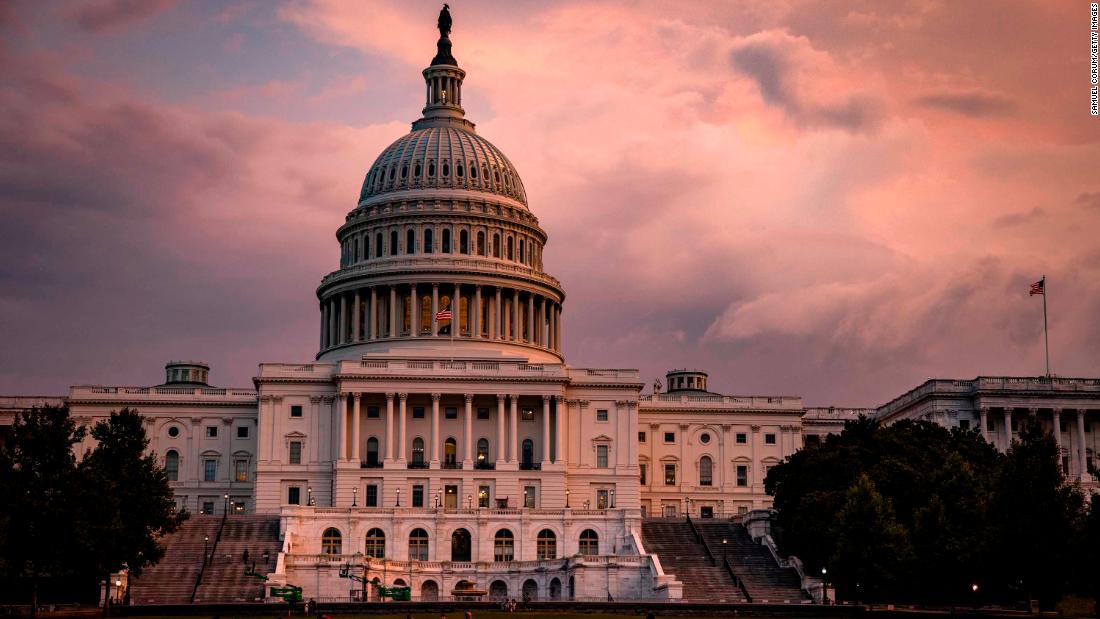Manchin has served our state well. He is a caring and determined leader who we’ve been honored to know as our father’s colleague and friend. Unfortunately, when it comes to our state’s future (whether it’s the jobs West Virginians will hold or the energy they’ll consume), Manchin is sticking with a problematic past by opposing the Senate’s $3.5 trillion reconciliation bill. Only by supporting that bill can Manchin lead West Virginia boldly into the clean-energy future that will help the people he has been elected to serve.
He also failed to acknowledge the bill can be financed in large part by reversing the 2017 corporate tax cuts the senator himself
voted against —but now refuses to
raise to the rate called for in the bill, opting instead for a middle ground. By holding up the reconciliation bill, the senator is jeopardizing funds
necessary to uplift West Virginia’s economic outlook and resilience at a time when the state is
grappling with the country’s lowest life expectancy and one of its
highest poverty rates .
The challenges West Virginia faces will only be compounded by climate change and extreme weather events, which are already taking place with an alarming frequency. West Virginians will remember the flood in June 2016 that
killed 23 people and
damaged more than a thousand homes and businesses. As West Virginia becomes more mild and humid as a result of climate change, an
increase in rainfall would be dangerous given the state’s susceptibility to flash foods.
We need more resilient infrastructure to withstand increasingly frequent downpours. In New Orleans, the levees that were upgraded after Hurricane Katrina
stood up to Hurricane Ida. In other areas, Ida, which could become the
costliest weather-related disaster in US history , underscored the need for more improvements. Since 1980, the US has sustained almost 300 weather and climate disasters,
costing almost $2 trillion. These figures will rise unless there is a concerted effort to mitigate the climate crisis.
Yet Sen. Manchin
suggests putting a pause on the reconciliation bill, which would threaten the infrastructure bill and jeopardize the Senator’s own goals
outlined in his pending bill, the American Jobs in Energy Manufacturing Act of 2021.
The climate crisis is already here and intensifying. Why wait for things to get even worse? The costs of recovering from extreme weather events is likely to become dramatically more expensive as well. Investing in more resilient infrastructure now will ultimately be safer (
and cheaper) than waiting to rebuild after each disaster. Sen. Manchin should be leading the charge to act—not undermining it.
West Virginia needs the reconciliation bill. As US coal consumption continues to
decline, West Virginia’s fossil fuel economy has
taken a hit. Companies are already making adjustments. The state’s
two biggest utilities, American Electric Power (AEP) and FirstEnergy Corp, have plans to dramatically
reduce their carbon dioxide emissions by 2050. Employers such as
Walmart and
Kroger have also set prudent emission reduction targets. Our elected leaders at the local, state, and national levels need to keep up with the private sector and support financing for infrastructure that complements this progress, rather than impedes it.
In order to ensure the economy and communities of West Virginia survive the energy transition, we need to pass both the bipartisan infrastructure bill and the reconciliation bill. Taking into account key provisions from Biden’s infrastructure plan, The Center for Energy and Sustainable Development at WVU Law School
modeled a “Clean Innovation Pathway” that would allow West Virginia to rely largely on emission-free power.
By 2040, this pathway would reduce the cost of electricity by $855 million, increase full-time employment, and secure billions in investment in clean energy projects. By building resilient infrastructure and reducing carbon pollution, the two bills together would bolster national security against destabilizing disasters, while providing economic opportunities by expanding jobs and sustainable industries nationwide.
We need to move away from an economy dependent on fossil fuels that drives climate chaos and deepens systemic threats to the economic and physical security of Americans. In order to lead the state to a brighter future, Manchin should recognize the inevitable changes taking place around us and act accordingly.
In 2009, the late Sen. Robert Byrd
said: “West Virginians can choose to anticipate change and adapt to it, or resist and be overrun by it.” In the later years of his life, Byrd underwent a remarkable evolution by publicly apologizing for his involvement with the Ku Klux Klan and reversing his stance on climate change. We hope Manchin will follow Byrd’s lead on climate by evolving with the times.
Likewise, our family, known to many for its legacy of oil wealth, has acknowledged and acted
upon the undeniable science that documents the destructive impact fossil fuels have on our climate. We consider it our moral imperative to divest from fossil fuels and invest sustainably. Many Rockefeller-affiliated nonprofits are also
putting their endowments, which originated from oil wealth, towards clean and inclusive economic
development. West Virginians should share in the prosperity and promise that the renewable energy boom will bring. The federal support the reconciliation and infrastructure bills offer will be critical to making it possible.
Sen. Manchin should acknowledge this, too. By supporting the reconciliation bill, he can help unlock economic opportunities, more resilient infrastructure and a more sustainable future for our state and our country.
![]()


